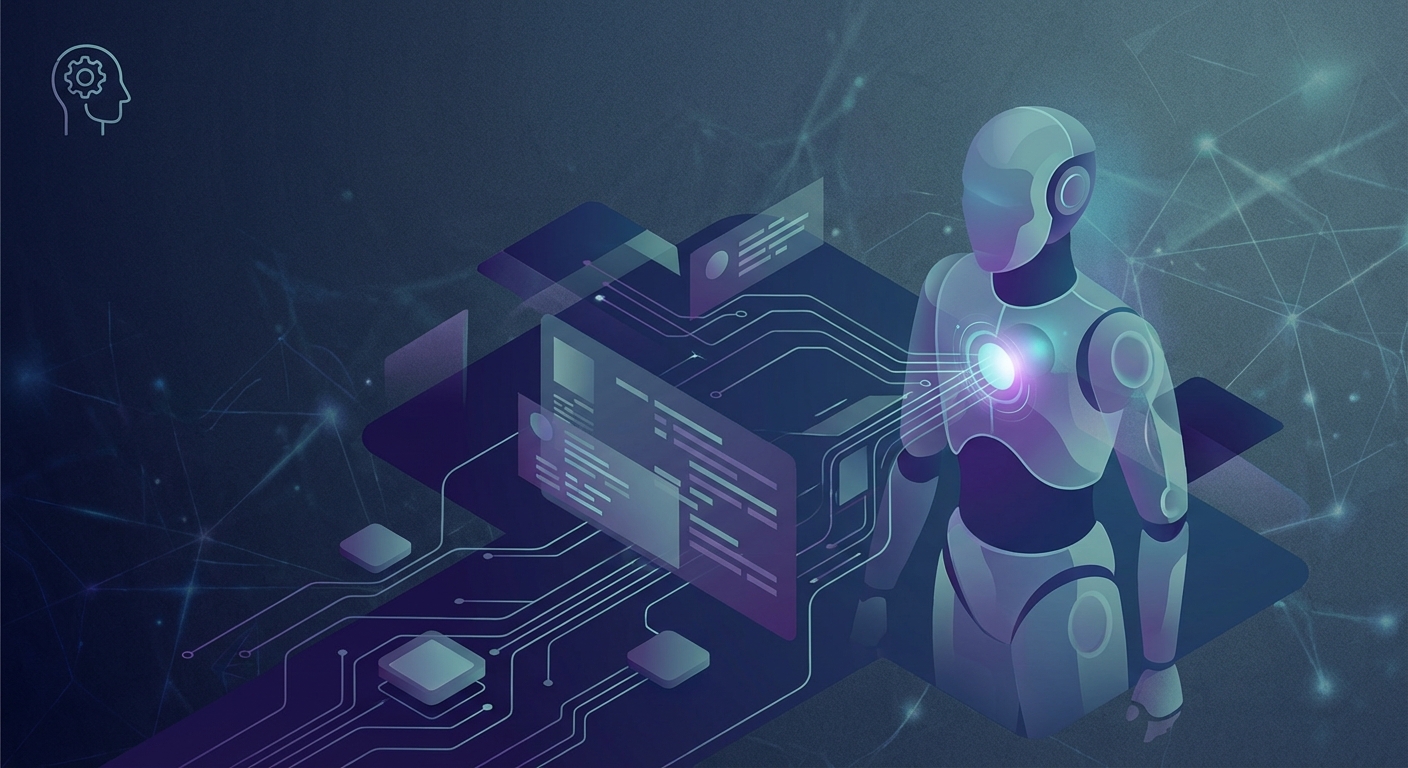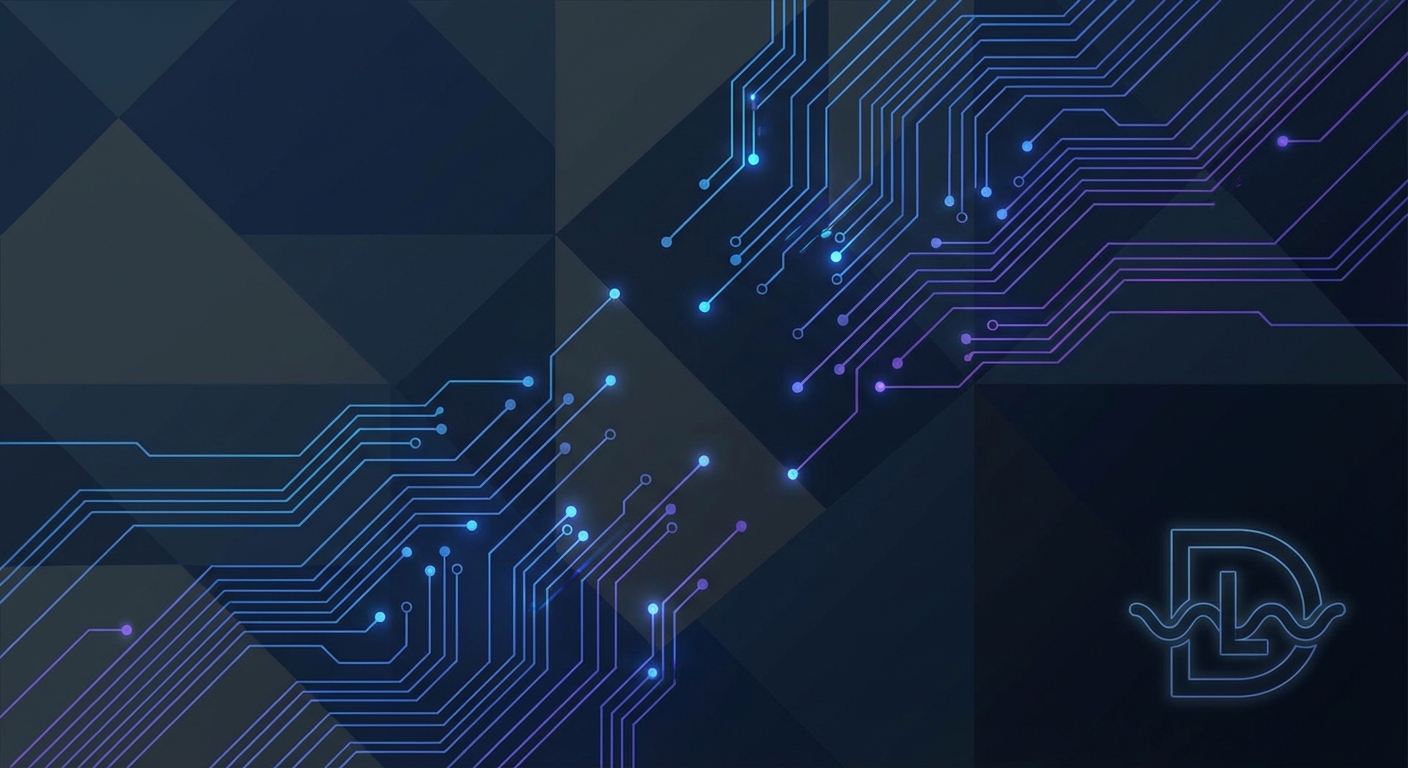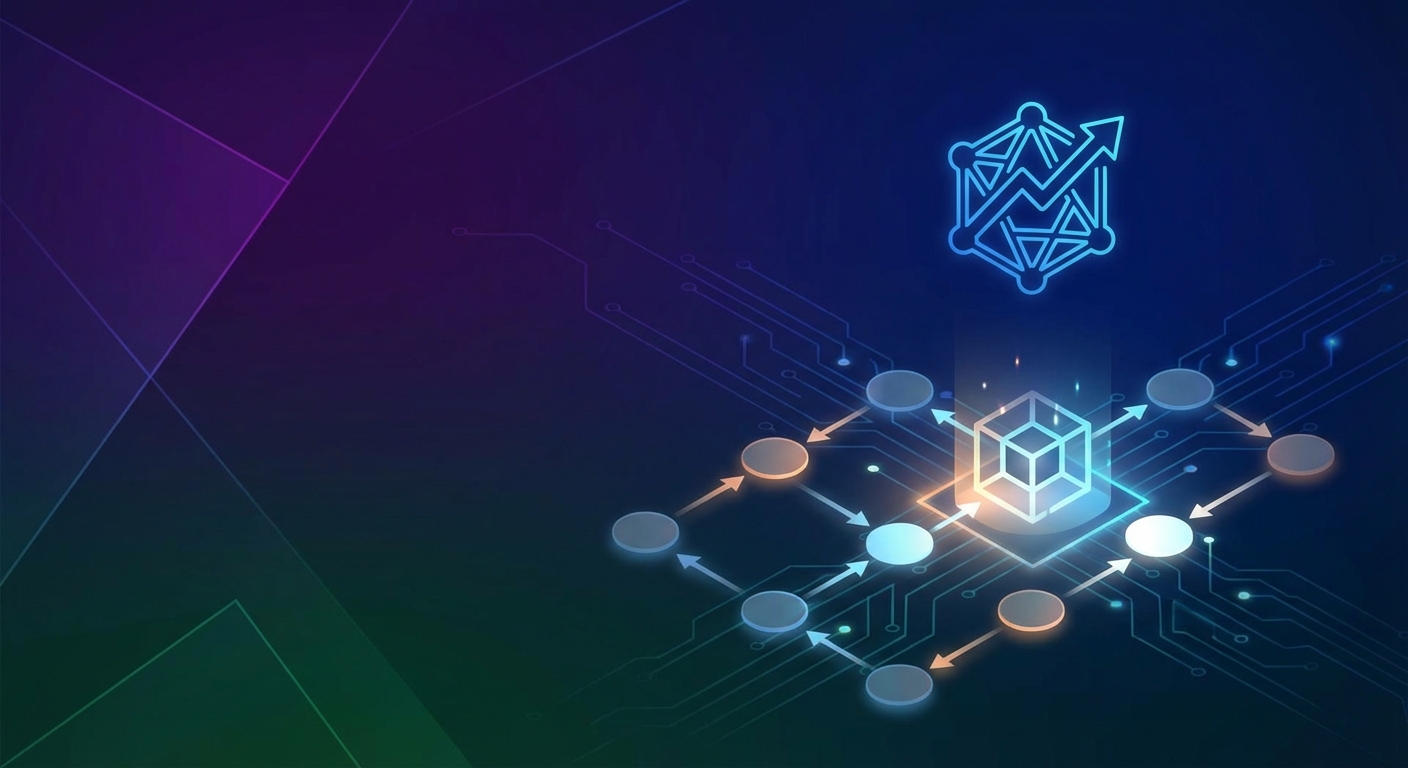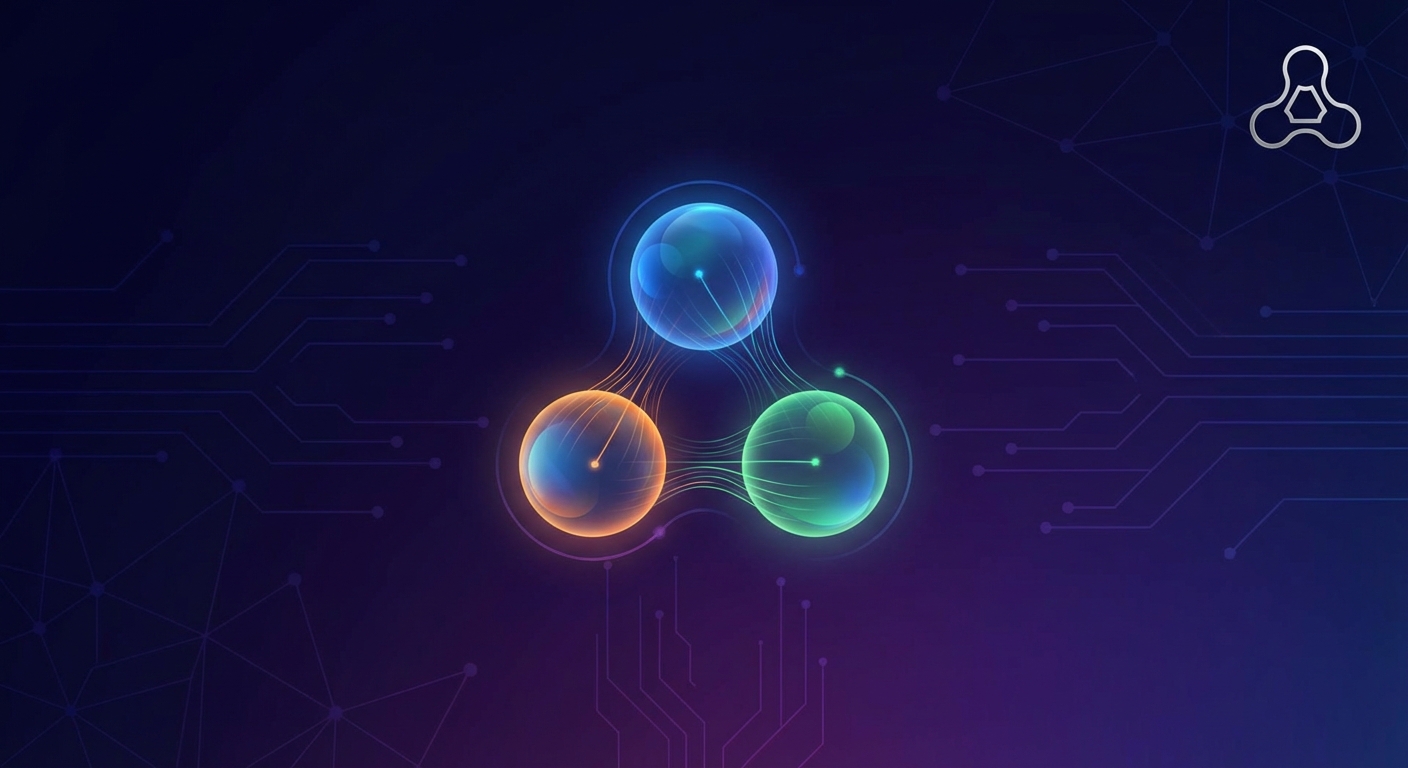The Development of Autonomous Generative AI Agents
TL;DR
- This article covers the exciting developments in autonomous generative ai agents, exploring how they're evolving from simple chatbots to independent problem-solvers. It dives into the benefits, risks, and practical applications across industries, with a focus on how businesses can prepare for and implement this transformative technology. We will also be looking at what to consider when you are looking into integrating AI agents.
Introduction: The Rise of Agentic AI
Okay, so ai agents... it's not just another buzzword, right? But what are they exactly, and why should marketing teams care? Let's dive in, because honestly, it's kinda game-changing.
Think of agentic AI as software that actually does stuff on its own. Not just answering questions like a chatbot, but like, making decisions and completing complex tasks without needing you to hold it's hand every step of the way. Deloitte says these "autonomous generative ai agents" can boost productivity for knowledge workers--that's us!
- It's different from your basic chatbot or even a co-pilot. Agentic ai can reason and act independently.
- Investors are throwing money at this stuff--over $2 billion in the last couple of years, according to Deloitte. This massive investment signals strong market confidence in the potential of agentic AI and suggests funding is flowing into companies developing these advanced AI capabilities.
- It's about automating those multi-step processes that normally eat up your time.
So, how does this actually work? Imagine a marketing ai agent that not only drafts social media posts but also analyzes performance data and adjusts the campaign strategy on its own. It's about moving from reactive adjustments to proactive optimization. This could free up marketers to focus on the bigger, strategic picture.
Okay, so it's not perfect yet. Deloitte predicts that 25% of companies using gen ai will launch agentic ai pilots next year. While some companies are already leveraging agentic AI for its capabilities, this prediction highlights a significant upcoming wave of adoption for pilot programs. But hey--that's pretty soon, right? Get ready, because it looks like the future of ai is all about agents.
Understanding the Core Components of Autonomous AI Agents
Okay, so you're building an ai agent? Awesome. But it's like building a car, right? You need all the parts working together smoothly. Let's peek under the hood and see what makes these things tick.
At the heart of any decent ai agent is a foundation model, often a large language model or llm. These llms give the agent the power to reason, analyze, and adapt to all sorts of crazy workflows. Think of it as the agent's brain, letting it understand complex instructions and make decisions on the fly.
- llms aren't perfect: They're like really smart toddlers - they need guidance. llms need other tech to actually do anything in the real world. This "other tech" often includes things like APIs to interact with software, databases to access information, and specific execution environments to run commands.
- Chain-of-thought models are clutch: They help agents break down big problems into smaller, manageable steps. It's like showing your work in math class, but for ai.
The diagram illustrates how a complex task is first broken down. If reasoning is needed, a chain-of-thought process is initiated, allowing the agent to meticulously plan and execute steps. This process includes a crucial error correction phase, where the agent can identify and rectify mistakes in its reasoning before arriving at a final solution. If direct action is sufficient, the agent bypasses the chain-of-thought and proceeds to the solution. This step-by-step breakdown is fundamental to how agents tackle intricate problems, ensuring a more robust and accurate outcome.
Autonomy is where these agents really shine. They're not just following orders; they're planning and executing complex tasks with minimal hand-holding. This ability to act independently is enabled by their core components working in concert.
- Environmental awareness is key: Agents need to understand the world around them, whether it's a virtual landscape, a physical space, or some weird mix of both. This awareness allows them to perceive their surroundings, gather relevant information, and make informed decisions that are contextually appropriate for task completion.
- Multimodal data is the future: We're talking videos, images, audio, text, numbers... the whole shebang. The more data an agent can process, the better it can understand the situation and make smart decisions. Processing multimodal data allows agents to gain a richer, more nuanced understanding of complex scenarios, leading to more sophisticated reasoning and more effective task execution.
An ai agent isn't an island. It needs tools to get stuff done. It also needs to remember what it's doing.
- Tools are everything: Think software, enterprise apps, even the internet itself. An agent needs to be able to reach out and grab the right tool for the job. For example, an agent might use a web scraping tool to gather data from a website, an email client api to send a message, or a calendar api to schedule a meeting. These tools are the agent's hands and feet in the digital world, enabling it to perform actions beyond its internal processing capabilities.
- Orchestration matters: Agents can direct other systems and bots to complete tasks. It's like conducting an orchestra, but with robots.
- Memory is essential: short-term for keeping track of what it's currently doing, and long-term for learning from past experiences.
So, yeah, those are the big pieces. Next up, we'll look at how these agents actually do stuff.
Applications Across Industries
Okay, so ai agents are popping up everywhere, huh? But it's not just hype, i'm telling you. The real magic is how they are changing industries, like actually changing them.
Think about customer support. We've all been stuck dealing with those dumb chatbots that can't understand anything beyond the most basic questions. Agentic ai, though? It can handle complex inquiries, and even resolve issues without a human stepping in.
- Imagine an ai agent that can understand a customer's frustration just from the tone of their voice. This capability relies on advanced audio processing and sentiment analysis models, which can detect subtle vocal cues like pitch, cadence, and volume to infer emotional states.
- It could then offer personalized solutions, or even escalate the issue to a human agent with a full summary of the problem.
- This isn't just about cutting costs; it's about making customers actually happy.
Then there's cybersecurity. With the shortage of skilled workers in this field, ai agents could be a lifesaver. They can autonomously detect attacks, generate reports, and even help developers fix vulnerabilities in new code.
This diagram shows how an AI agent can manage cybersecurity threats. Upon detecting a potential threat (A), it analyzes the relevant data (B). If the threat is deemed high-risk, the agent initiates an automated response (C) for containment and mitigation (E). For lower-risk threats, it may flag them for human review (D) before proceeding to containment. This integrated approach allows for efficient and scalable threat management.
And get this: these agents could reduce the workload on human experts by up to 90%, according to that Deloitte report we looked at before.
Regulatory compliance is a nightmare for most companies. ai agents can analyze regulations and corporate documents, and proactively advise human professionals. It's like having a super-smart, always-available compliance officer.
- This can help companies understand and comply with regulations, but also accelerate the adoption of gen ai itself.
- Think about it: ai helping ai. It's kinda meta, right?
So, what's next for these ai agents? Well, they need to be reliable, secure, and, y’know, not evil. But the potential is definitely there.
Up next, we'll look at how to build these things.
Challenges and Risks in Autonomous AI Agent Development
Okay, so ai agents aren't all sunshine and rainbows, right? Like anything new, there's gonna be some bumps in the road. What are some of the things that could go wrong?
One of the biggest hurdles is making sure these agents are actually reliable enough for real-world use. I mean, it's one thing if your smart fridge orders the wrong groceries, but it's a whole other thing if a financial ai agent makes a bad investment decision.
- We're talking about situations where getting it right "most of the time" just isn't good enough. Think about agents in healthcare, for instance; a mistake could have serious consequences.
- That's why human oversight is still super important. Even the best ai agent still needs a human in the loop to double-check its work and catch any errors.
And it's not just about catching mistakes; it's about learning from them, too. Getting human experts involved helps the ai agents learn, and that can move things forward. This learning can happen through various mechanisms: human experts can provide feedback on agent actions, correct errors, label data for retraining, or even guide the agent's decision-making process during complex scenarios. This iterative feedback loop is crucial for improving agent performance and reliability over time.
Then there's the whole data thing. ai agents need access to tons of data to do their jobs effectively. But that data is often sensitive, and needs protection.
- Think about a retail agent that has access to millions of customer records. If that data gets into the wrong hands, it could be a disaster.
- So, data governance and cyber security become really important. Companies need to put strong measures in place to protect that data and prevent unauthorized access.
It's a tricky balancing act, though. You need to give the agent enough autonomy to do its job, but you also need to make sure it doesn't have too much access to sensitive data, or you risk the whole thing. Potential strategies for achieving this balance include implementing role-based access controls, anonymizing or pseudonymizing sensitive data before it's accessed by the agent, and employing tiered permission systems that grant agents access only to the data absolutely necessary for their current task.
And speaking of risks: what about bias? ai models are trained on data, and if that data is biased, well, the ai agent is gonna be biased too. Beyond data security, the very data used to train these agents can introduce another significant challenge: bias.
- That means implementing policies and controls to detect and mitigate biased outputs becomes essential.
- And it's not just about bias; it's about transparency, too. We need to understand how these ai models work so we can address any potential issues.
Of course, there are ethical considerations around intellectual property, too; you don't want your agent inadvertently exposing sensitive company information. Specific IP concerns can include the ownership of training data, the rights to content generated by the AI, and the potential misuse or exposure of proprietary algorithms embedded within the agent's architecture.
So, yeah, there are some challenges and risks to consider, but it's not all doom and gloom.
Next up, we'll look at how to address these challenges and make sure ai agent development is responsible and ethical.
Preparing for the Future of Autonomous AI Agents
So, you're thinking about letting ai agents run wild in your company? Hold up a sec, it's not quite plug-and-play. Getting ready for these autonomous dudes is key, otherwise, you're just asking for a mess.
First off, take a hard look at your workflows. Not everything needs an ai agent, y'know?
- Figure out which tasks are ripe for automation. Think routine stuff, like sifting through customer inquiries or triaging support tickets.
- Trim the fat. ai agents are only as good as the processes they're automating, so ditch any unnecessary steps that waste time and resources. This streamlining is a crucial prerequisite for effective automation.
- Give 'em clear marching orders. An ai agent needs well-defined goals and access to the right data to actually be useful. Once the fat is trimmed, you can provide precise instructions for the agent to follow.
Security, security, security! I can't stress this enough.
- Beef up your data governance. You don't want sensitive info leaking because of a rogue ai agent.
- Invest in cybersecurity. Protecting your systems from outside threats is crucial, especially when you're dealing with AI.
- Don't skimp on it spending. Data management and cybersecurity? Those should be top priorities, not afterthoughts.
Don't get blinded by the shiny new tech.
- Question everything. Just because an ai agent can do something doesn't mean it should. By questioning the necessity and utility of an AI agent's capabilities, you avoid being overly impressed by its novelty and instead focus on its practical value.
- Be patient. These things take time to get right, so don't expect overnight miracles.
- Focus on the bottom line. Controlled experiments are cool, but what really matters is how agentic ai impacts your company's performance.
As autonomous ai agents evolve, consider how they integrate with your existing systems. To effectively plan for this integration, businesses should: * Assess current infrastructure: Identify existing systems, databases, and software that the AI agents will need to interact with. * Map data flows: Understand how data will move between current systems and the AI agents, ensuring compatibility and security. * Define integration points: Determine the specific APIs or connectors needed for seamless communication. * Plan for scalability: Ensure your infrastructure can handle the increased demands of AI agent operations. * Develop a phased rollout strategy: Begin with pilot programs to test integration before full-scale deployment.
Next up, we’ll look at how Technokeen can help you maximize the impact of your ai investments.
Conclusion: The Transformative Potential of Autonomous Generative AI Agents
Wrapping things up, right? It's easy to get lost in the tech, but what's the real deal with ai agents?
- Productivity boost: As Deloitte pointed out, agentic ai isn't just about automating tasks; it’s about supercharging knowledge workers. Think less time on routine stuff, more time on actual strategy.
- More than chatbots: These ain't your grandma's chatbots. They can act solo or in groups to get stuff done, making decisions along the way.
- Still early days, though: We're not in the clear yet. Agentic ai is still a baby learning to walk. This is largely due to ongoing challenges in areas like ensuring absolute reliability and fully addressing complex ethical considerations.
So, where do we go from here?
- Get ready: These things are evolving fast, so get your workflows in order.
- Slow down: Challenges, like bias and security, are gonna take time to sort out.
- Think big picture: Make sure all this fancy tech actually helps your business.
It's a wild ride, but it's one worth preparing for.






